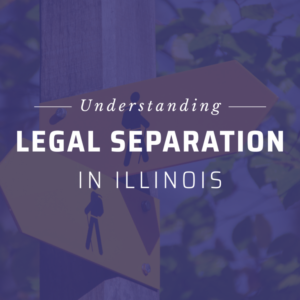 Divorce and legal separation are completely different. They have different legal consequences. If you’re not sure if you want a divorce, a legal separation may or may not be a good alternative. Understanding the differences can help you decide the best path.
Divorce and legal separation are completely different. They have different legal consequences. If you’re not sure if you want a divorce, a legal separation may or may not be a good alternative. Understanding the differences can help you decide the best path.
I want to keep our marriage together. Our marriage counselor says we should separate for a while. Do you advise we separate?
No. Couples only work out problems in a marriage through communications. There will be no, or little, communication if you are separated.
Do you mean the marriage counselor is wrong in advising a separation?
Probably. Decades of experience tell me–absence does not make the heart grow fonder. If anything, one spouse may realizes that separation seems better than living together.
Do you ever advise separation?
Yes. But only to announce, to presage, a divorce. If one of the spouses decides there will be a divorce, but the other party does not get the signal, a strong way to send a message is to move out.
Is a legal separation like a divorce?
A legal separation, like a divorce, is a court procedure that produces a court judgment establishing the parties’ rights and obligations. The difference is that a legal separation judgment does not divorce the couple. They remain married and, unless the parties consent, in legal separation proceedings the court cannot divide the parties’ property.
Why do couples have legal separations?
In some instances: for religious reasons. But the Roman Catholic Church has liberalized its positions on church annulments.
What can a judge order in a legal separation judgment?
- Parental responsibilities (parenting time and decision-making),
- Child support,
- Maintenance (alimony).
- And by agreement–property allocation.
How is alimony / maintenance affected by a legal separation?
Illinois law provides that “…if a party to a judgment for legal separation files an action for dissolution of marriage, the issues of temporary and permanent maintenance shall be decided de novo.” De novo means like a new matter. So, the duration of maintenance under a legal separation is not considered against a potential overall length of maintenance under the Illinois maintenance guidelines. Obviously, this favors the maintenance recipient but penalizes the payor. For this reason, potential maintenance payors often counter a legal-separation lawsuit with a petition for divorce.
Will I get into trouble if I merely split–leave the marital residence?
No. By “abandoning” your house, you do not lose your interest in it. But with children, if you intend to have their primary residential care, leaving without the children might prejudice you.
Can I be evicted from my house despite my wanting to stay so I can work out the problems in the marriage?
Potentially. See our Q&A regarding eviction from the marital home.
If I file suit for divorce and have my spouse served with summons doesn’t that mean he/she has to move out?
No. Illinois law has rather onerous provisions relating to eviction from the marital home. See the Gitlin Law Firm’s Q&A re exclusive possession of the marital home.